Advice: Before and During Student Teaching / Observations
Field Experiences Overview
All History/Social Studies Education majors will have several opportunities to leave campus and visit local schools throughout their studies at App State. A few courses within the Professional Education Requirements (listed on your program of study), as well as your methods-based internship course, will have field experience components. Students in these courses will complete a specific number of hours at local schools and observe veteran teachers in action, and even lead a few activities and/or lessons. Students typically travel to Watauga, Ashe, Avery, Caldwell, or Wilkes County to complete these internships.
Student teaching is a semester-long field experience that will be the culmination of your degree. Students are placed throughout the state for their student teaching assignments. More information related to field experiences can be found on the website of the Office of Field Experiences located within the Reich College of Education.
- Are you currently in HIS 3632 Methods and planning to student teach next semester? Complete this Google Form before your advising session with the Program Director!
An Award-Winning Program
Our program has a long history, graduating over 1,000 history/social studies education majors since its current model began in 1996. In recent years, three of our majors — Adam Moore (2017-2018), Kenley Little (2018-2019), and Gracie Bullington (2023-2024) have been selected as the Appalachian State University Student Teacher of the Year. In addition, another two - Shannon Furr ('19) and Bryson May ('24) - were also selected as finalists for the App State STOY. Some of our graduates have been recognized by their school systems as the Beginning Teacher of the Year, including Dalton Lewis (2020-2021) and Virginia Griffith (2021-2022). [You can read more about some of these amazing educators on our Alumni Spotlight page!]
We are very proud of our History Education Mountaineers!
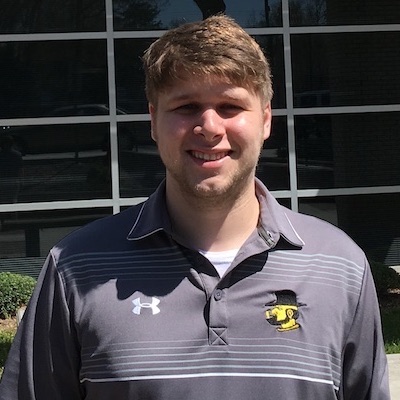 | 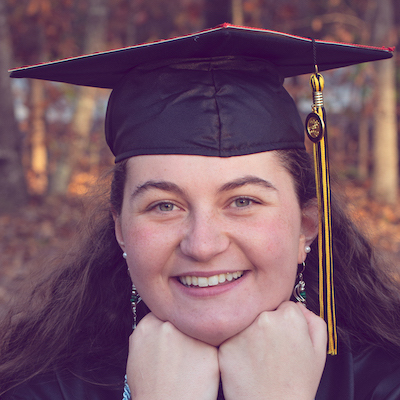 | 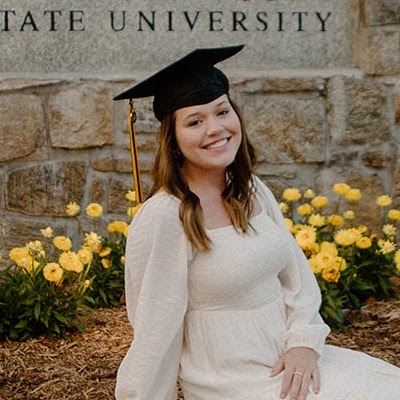 | 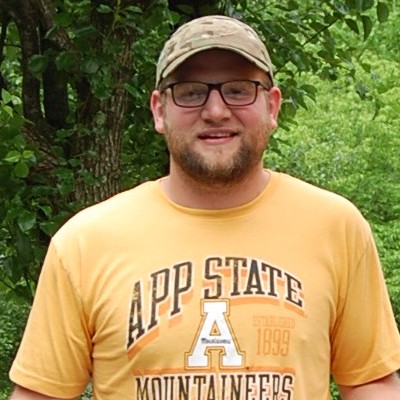 | 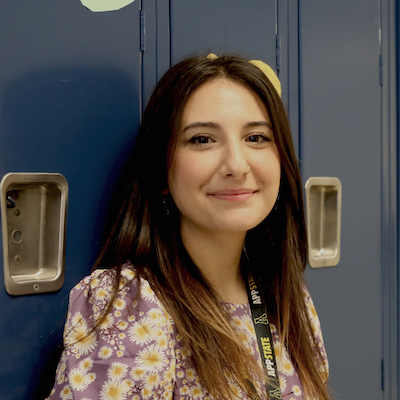 |
| ASU STOY - Adam Moore ('18) | ASU STOY - Kenley Little ('18) | ASU STOY - Gracie Bullington ('23) | Ashe County Schools (NC) BTOY - Dalton Lewis ('18) | Union Co. Schools (NC) BTOY - Virginia Griffith ('21) |
Advice: Before & During Student Teaching / Observations
1. Contacting your Clinical Educator (Cooperating Teacher)
Make your first contact with your Clinical Educator/school by writing an introductory email. First impressions matter!
- Suggestions for Fall Student Teachers (PDF, 56 KB)
- Suggestions for Spring Student Teachers (PDF, 55 KB)
2. First Weeks of Student Teaching
- Upload your weekly schedule on AsULearn by Friday. Email your first schedule to historyeducation@appstate.edu, then post it to AsULearn each week afterward. Schedules are always emailed/posted for the following week.
- Submit (Post) your lesson plans on AsULearn
- Use the HEP Unit Map and Lesson Plan templates (links above)
- Contact your History Dept. and/or RCOE supervisor immediately if you are running into problems, or have questions.
- Begin designing & planning your edTPA unit and lessons. Meet with your CT and discuss which unit will be your edTPA submission as soon as possible.
- Select your unit
- Design your lessons
- Follow instructions - provided through RCOE, your RCOE supervisor, and on AsULearn
Weekly Schedules
- Blank Copy (Google Doc link). Make a Copy and follow these steps:
- Edit the document title to include your last name. For example: "(Last Name) Schedule"
- Using the "share" button, turn "link sharing" on for anyone at Appalachian State and share with historyeducation@appstate.edu. You will share the same link each week on your AsULearn page, do not make a new schedule each week.
- Each week, update your schedule doc and repost the same link on AsULearn.
- This video provides step-by-step instructions
- Examples of a completed schedule (PDF file), and one on an A/B day [Email us if you need help with your particular schedule format]
- Schedules should be turned in each week of student teaching no later than Friday >>> for the upcoming week!
3. Student Teaching Content Observations
- History Dept. Academic Area Consultants will use the History Dept. Observation Form to conduct your classroom visits. [PDF version - read only]
- We will observe you twice, in addition to the three visits you will receive from your RCOE Supervisor. Our focus will mostly be on social studies content, resources, strategies, and how they all relate to edTPA and initial licensure.
- Our visits and monitoring of your work on AsULearn are designed as a coaching model - we are here to support you and your Clinical Educator.
4. Professional Etiquette & Responsibilities
- Stay in touch with your cooperating teacher, RCOE supervisor, and Academic supervisor (History Dept.) at all times.
- Contact all 3 supervisors if you will be late, or out sick, no later than 6:00 AM that day.
- Inform your CT of the mandatory meetings at App State in August, September, and mid-October (Fall) / January, February, and mid-March (Spring).
- Dress, behavior (on and off-campus), and your digital identity: Always look and act professionally. This is your longest job interview!
- Non-classroom responsibilities: Fulfill before- or after-school duties, attend sporting events, and be involved with your school as your schedule permits.
- Research - As a professional educator, it is important to continue researching History content and pedagogy. Look for model lesson plans, history teaching strategies, attend conferences (like NCCSS), sit in on professional development workshops, and continue reading scholarship from historians.
